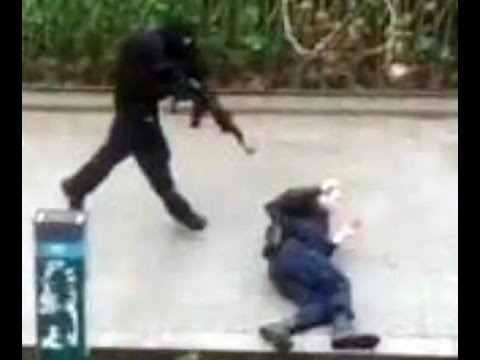U.S. President Donald Trump said that the terrorist attack on Paris on Thursday would greatly affect France presidential election scheduled to take place on Sunday.
The Paris attack on Champs Elysees was claimed by militant group Islamic State; one attacker was killed and officials said they were looking for a potential second suspect.
The first round of voting in the two-stage election in France is due to take place on Sunday.
Trump said on his Twitter handle on Friday: “Another terrorist attack in Paris.
The people of France will not take much more of this. Will have a big effect on presidential election!”
The U.S. leader, who has been having a running battle with the media, also predicted that the media would kill whatever he has achieved, in their assessment of his 100 days in office, due next week.
“No matter how much I accomplish during the ridiculous standard of the first 100 days, and it has been a lot (including Supreme Court), media will kill!” Trump tweeted.
The Paris shooting abruptly pushed national security up the agenda, potentially making the outcome of Sunday’s first round vote even more difficult to call.
However, France said its security forces were fully mobilized for a presidential election at the weekend after the killing of a policeman by an Islamist militant threw a dark shadow over the last day of an unpredictable campaign.
Emerging from an emergency meeting of security officials, Prime Minister Bernard Cazeneuve announced a full mobilisation of security forces, including elite units, to back up 50,000 police already earmarked to ensure citizens’ safety during the election.
Cazeneuve told reporters that “the government is fully mobilised. Nothing must be allowed to impede the fundamental democratic process of our country.
“It falls to us not to give in to fear and intimidation and manipulation which would play into the hands of the enemy”.
Campaigning and the publication of voter surveys are banned from midnight on Friday until polling stations close.
Sunday’s round of voting will be followed by a second-round runoff on May 7 between the top two candidates.
With their hardline view on security and immigration, the positions of Le Pen and Fillon may resonate more strongly for some voters.
But attacks that have taken place soon before elections, including the November 2015 attacks in Paris ahead of regional elections and the shooting in a Jewish school before the 2012 presidentials, have not appeared to change the course of those ballots.
An assault on a soldier in February at the Paris Louvre museum by a man wielding a machete also had no obvious impact on this year’s opinion polls, which have consistently said that voters see unemployment and trustworthiness of politicians as bigger issues.
Le Pen, who leads the National Front, has made immigration and security a core part of her campaign.
She wants to tighten French borders controls and build more jails, and says authorities are not doing enough to protect citizens from militant attacks, which have killed more than 230 people in France since January 2015.
“Today fundamentalist Islam is waging war and the measures are not being taken to limit the risks,” she said on RFI radio.
Macron, who from 2014 to 2016 was economy minister in the Socialist government that Le Pen has criticised repeatedly for its security record, said the solutions were not as simple as she suggested.
“I’ve heard Madame Le Pen saying again recently that with her in charge, certain attacks would have been avoided.
“There’s no such thing as zero risk. Anyone who pretends (otherwise) is both irresponsible and deceitful,” Macron said on RTL Radio. (NAN)
APT/SH

